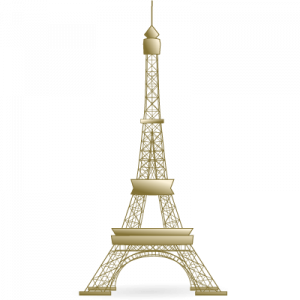Hello!
I plan to take an LL.M in Arbitration..next year probably. Which one is best: the MIDS program (Geneva) or the Master in International Commercial Arbitration (Stockholm).
Thanks.
Arbitration
Posted Jun 03, 2009 12:52
I plan to take an LL.M in Arbitration..next year probably. Which one is best: the MIDS program (Geneva) or the Master in International Commercial Arbitration (Stockholm).
Thanks.
Posted Jun 03, 2009 14:27
It is a difficult question to answer but I think the MIDS is better. I also want to do an LLM in Arbitration next year and I will apply for the MIDS. The MICA is older and consequently is more famous. The MIDS is new (started this year) but I am sure it is going to be the best. I have talked with a lot of people and surfed on the internet, and the MIDS has the best professors of all over the world, the syllabus of the program is much more complete than the MICA one, it is located in one of the most important abrbitration centers of the world, etc.
Posted Jun 03, 2009 19:11
MIDS, no doubt!
Posted Jun 03, 2009 22:07
MIDS
Posted Jun 04, 2009 15:13
Well, I would say ICAL, by far and for a number of reasons:
(i) it is 8-year old, while the MIDS is new and, as such, a question mark;
(ii) it focuses on "international commercial arbitration", while with MIDS you are forced to study remotely-related subjects like International Trade or stuff like that;
(iii) the seriousness of the ICAL derives also from the fact that it is not customizable; you want to learn arbitration? This is it, everyone will get the same level of preparation;
(iv) the professors at Stockholm are great and exclusively dedicated to commercial arbitration while at MIDS you have about 30 speakers and you don't really know who your reference is;
(v) the Stockholm Chamber of Commerce administers more international commercial arbitration cases than Geneva;
(vi) it will allow you to work part-time during the second semester;
(vii) it will save you about 17,000 EURO!
(viii) it is MUCH more selective, also as a result of (i) and (vii) above;
I could go on... but I will stop this here. :-)
(i) it is 8-year old, while the MIDS is new and, as such, a question mark;
(ii) it focuses on "international commercial arbitration", while with MIDS you are forced to study remotely-related subjects like International Trade or stuff like that;
(iii) the seriousness of the ICAL derives also from the fact that it is not customizable; you want to learn arbitration? This is it, everyone will get the same level of preparation;
(iv) the professors at Stockholm are great and exclusively dedicated to commercial arbitration while at MIDS you have about 30 speakers and you don't really know who your reference is;
(v) the Stockholm Chamber of Commerce administers more international commercial arbitration cases than Geneva;
(vi) it will allow you to work part-time during the second semester;
(vii) it will save you about 17,000 EURO!
(viii) it is MUCH more selective, also as a result of (i) and (vii) above;
I could go on... but I will stop this here. :-)
Posted Dec 24, 2009 11:47
Well, I would say ICAL, by far and for a number of reasons:
(i) it is 8-year old, while the MIDS is new and, as such, a question mark;
I DONT THINK THIS IS A PROBLEM AT ALL
(ii) it focuses on "international commercial arbitration", while with MIDS you are forced to study remotely-related subjects like International Trade or stuff like that;
NOT TRUE. ACCORDING TO THE WEBSITE YOU CAN SELECT THE COURSES YOU WANT AND ALMOST ALL IS CONECTED TO ARBITRATION. THE MIDS FOCUSES BOTH IN PUBLIC AND PRIVATE ARBITRATIONS, WHILE IN STOCKHOLM YOU ONLY SEE COMMERCIAL.
(iii) the seriousness of the ICAL derives also from the fact that it is not customizable; you want to learn arbitration? This is it, everyone will get the same level of preparation;
WHAT DOES THIS SUPPOSE TO MEAN?...
(iv) the professors at Stockholm are great and exclusively dedicated to commercial arbitration while at MIDS you have about 30 speakers and you don't really know who your reference is;
THE MIDS CAN BE NEW BUT FOR SURE HAS THE BEST PROFESSORS OF THE WORLD IN ARBITRATION. NON PIONT OF COMPARISON WITH ANY OTHER UNIVERSITY IN THE WORLD IN THIS ASPECT.
(v) the Stockholm Chamber of Commerce administers more international commercial arbitration cases than Geneva;
NOT TRUE. GENEVA AND ZURICH ARE MORE IMPORTANT AND DEVELOPED CENTERS OF ARBITRATION THAN STOCKHOLM.
(vi) it will allow you to work part-time during the second semester;
THIS SHOWS THAT ITS NOT AS INTENSIVE AS YOU SAID
(vii) it will save you about 17,000 EURO!
THIS IS TRUE HEHE
(viii) it is MUCH more selective, also as a result of (i) and (vii) above;
NOT TRUE. LAS YEAR MIDS HAD 300 APPLICANTS AND THEY ONLY TAKE 30 STUDENTS.
I could go on... but I will stop this here. :-)
(i) it is 8-year old, while the MIDS is new and, as such, a question mark;</blockquote>
I DONT THINK THIS IS A PROBLEM AT ALL
<blockquote>(ii) it focuses on "international commercial arbitration", while with MIDS you are forced to study remotely-related subjects like International Trade or stuff like that;</blockquote>
NOT TRUE. ACCORDING TO THE WEBSITE YOU CAN SELECT THE COURSES YOU WANT AND ALMOST ALL IS CONECTED TO ARBITRATION. THE MIDS FOCUSES BOTH IN PUBLIC AND PRIVATE ARBITRATIONS, WHILE IN STOCKHOLM YOU ONLY SEE COMMERCIAL.
<blockquote>(iii) the seriousness of the ICAL derives also from the fact that it is not customizable; you want to learn arbitration? This is it, everyone will get the same level of preparation;</blockquote>
WHAT DOES THIS SUPPOSE TO MEAN?...
<blockquote>(iv) the professors at Stockholm are great and exclusively dedicated to commercial arbitration while at MIDS you have about 30 speakers and you don't really know who your reference is;</blockquote>
THE MIDS CAN BE NEW BUT FOR SURE HAS THE BEST PROFESSORS OF THE WORLD IN ARBITRATION. NON PIONT OF COMPARISON WITH ANY OTHER UNIVERSITY IN THE WORLD IN THIS ASPECT.
<blockquote>(v) the Stockholm Chamber of Commerce administers more international commercial arbitration cases than Geneva;</blockquote>
NOT TRUE. GENEVA AND ZURICH ARE MORE IMPORTANT AND DEVELOPED CENTERS OF ARBITRATION THAN STOCKHOLM.
<blockquote>(vi) it will allow you to work part-time during the second semester;</blockquote>
THIS SHOWS THAT ITS NOT AS INTENSIVE AS YOU SAID
<blockquote>(vii) it will save you about 17,000 EURO!</blockquote>
THIS IS TRUE HEHE
<blockquote>(viii) it is MUCH more selective, also as a result of (i) and (vii) above;</blockquote>
NOT TRUE. LAS YEAR MIDS HAD 300 APPLICANTS AND THEY ONLY TAKE 30 STUDENTS.
<blockquote>I could go on... but I will stop this here. :-)</blockquote>
Posted Mar 14, 2010 05:59
Hey guys,
Many of you here have sung quite a few praises for MIDS. I have been offered admission there (applicant from India) and before I accept, I was wondering if you could be kind enough to answer some of my queries:
i. What is the system of aid? Now that I have received an admission offer, should I send them an email requesting for aid?Their website simply says to contact them on email regarding aid.
ii. While it is beyond doubt that the Program has exceptional faculty, does that really lead to anything concrete in terms of job opportunities upon completion of the Program? Do the professors offer jobs to the students of the Program?
iii. How reputed is the program? Is it well appreciated in Geneva? While I understand this would be difficult to gauge considering that only one batch of students is actually "in the market", what is the general review of the Program?
Are any job fairs/placements conducted? How easy is it to get a job in an international law firm situated in Geneva? What about internships in the WTO?
I have to convey my acceptance soon, so guys, please respond as soon as you can!
Many of you here have sung quite a few praises for MIDS. I have been offered admission there (applicant from India) and before I accept, I was wondering if you could be kind enough to answer some of my queries:
i. What is the system of aid? Now that I have received an admission offer, should I send them an email requesting for aid?Their website simply says to contact them on email regarding aid.
ii. While it is beyond doubt that the Program has exceptional faculty, does that really lead to anything concrete in terms of job opportunities upon completion of the Program? Do the professors offer jobs to the students of the Program?
iii. How reputed is the program? Is it well appreciated in Geneva? While I understand this would be difficult to gauge considering that only one batch of students is actually "in the market", what is the general review of the Program?
Are any job fairs/placements conducted? How easy is it to get a job in an international law firm situated in Geneva? What about internships in the WTO?
I have to convey my acceptance soon, so guys, please respond as soon as you can!
Posted May 27, 2010 13:50
With regards to the following 2 threads:
"(iv) the professors at Stockholm are great and exclusively dedicated to commercial arbitration while at MIDS you have about 30 speakers and you don't really know who your reference is;
THE MIDS CAN BE NEW BUT FOR SURE HAS THE BEST PROFESSORS OF THE WORLD IN ARBITRATION. NON PIONT OF COMPARISON WITH ANY OTHER UNIVERSITY IN THE WORLD IN THIS ASPECT."
I think the ICAL program at Stockholm University brings both diversity and prestige in their guest lecturers. There is a significant distinction between "best professors of the world" and "best speakers of the world" in the world of arbitration. The structure of ICAL is that you are under the direction of one professor but provided a rare opportunity in having a variety of guest speakers from all aspects of international commercial arbitration. ICAL students are treated to presentations by the top arbitrators, arbitration attorneys and scholars in the world. To name a few: Dr. Pierre A. Karrer, Dr. Michael Moser and Kaj Hober,
"(v) the Stockholm Chamber of Commerce administers more international commercial arbitration cases than Geneva;
NOT TRUE. GENEVA AND ZURICH ARE MORE IMPORTANT AND DEVELOPED CENTERS OF ARBITRATION THAN STOCKHOLM."
Actually, I think you misread the quote. The Stockholm Chamber of Commerce DOES administer more international commercial arbitration cases than Geneva. In no way was this statement referring to "importance and development" of a center. Although in all honesty, the SCC, ICC and LCIA are the three most renowned international arbitration "institutes" and also Stockholm holds the reputation for being the most chosen seat of arbitration for international arbitrations, especially with the increasing roles of east-west commerce. This is something I'm sure you will learn in BOTH the ICAL and Geneva programs.
"(vi) it will allow you to work part-time during the second semester;
THIS SHOWS THAT ITS NOT AS INTENSIVE AS YOU SAID"
Actually the course is still as intensive as suggested. The only reason as to why you will be provided to work part time during the second semester is because that semester is devoted solely to your thesis. While it is NOT recommended you work during you second semester, there is less scheduled lectures so that you can devote more time to research, analyzing and writing your thesis.
"(viii) it is MUCH more selective, also as a result of (i) and (vii) above;
NOT TRUE. LAS YEAR MIDS HAD 300 APPLICANTS AND THEY ONLY TAKE 30 STUDENTS."
Actually, for the 2009-2010 year (I don't have the most recent statistics), the ICAL Program at Stockholm University received over 1200 applications and only 40 students are accepted, with the expectation that 10 or so of them will ultimately choose to not attend. Therefore, the ICAL program IS more selective and more difficult to get into.
"(iv) the professors at Stockholm are great and exclusively dedicated to commercial arbitration while at MIDS you have about 30 speakers and you don't really know who your reference is;
THE MIDS CAN BE NEW BUT FOR SURE HAS THE BEST PROFESSORS OF THE WORLD IN ARBITRATION. NON PIONT OF COMPARISON WITH ANY OTHER UNIVERSITY IN THE WORLD IN THIS ASPECT."
I think the ICAL program at Stockholm University brings both diversity and prestige in their guest lecturers. There is a significant distinction between "best professors of the world" and "best speakers of the world" in the world of arbitration. The structure of ICAL is that you are under the direction of one professor but provided a rare opportunity in having a variety of guest speakers from all aspects of international commercial arbitration. ICAL students are treated to presentations by the top arbitrators, arbitration attorneys and scholars in the world. To name a few: Dr. Pierre A. Karrer, Dr. Michael Moser and Kaj Hober,
"(v) the Stockholm Chamber of Commerce administers more international commercial arbitration cases than Geneva;
NOT TRUE. GENEVA AND ZURICH ARE MORE IMPORTANT AND DEVELOPED CENTERS OF ARBITRATION THAN STOCKHOLM."
Actually, I think you misread the quote. The Stockholm Chamber of Commerce DOES administer more international commercial arbitration cases than Geneva. In no way was this statement referring to "importance and development" of a center. Although in all honesty, the SCC, ICC and LCIA are the three most renowned international arbitration "institutes" and also Stockholm holds the reputation for being the most chosen seat of arbitration for international arbitrations, especially with the increasing roles of east-west commerce. This is something I'm sure you will learn in BOTH the ICAL and Geneva programs.
"(vi) it will allow you to work part-time during the second semester;
THIS SHOWS THAT ITS NOT AS INTENSIVE AS YOU SAID"
Actually the course is still as intensive as suggested. The only reason as to why you will be provided to work part time during the second semester is because that semester is devoted solely to your thesis. While it is NOT recommended you work during you second semester, there is less scheduled lectures so that you can devote more time to research, analyzing and writing your thesis.
"(viii) it is MUCH more selective, also as a result of (i) and (vii) above;
NOT TRUE. LAS YEAR MIDS HAD 300 APPLICANTS AND THEY ONLY TAKE 30 STUDENTS."
Actually, for the 2009-2010 year (I don't have the most recent statistics), the ICAL Program at Stockholm University received over 1200 applications and only 40 students are accepted, with the expectation that 10 or so of them will ultimately choose to not attend. Therefore, the ICAL program IS more selective and more difficult to get into.
Posted Apr 14, 2011 23:46
The ICAL is supposed to be specialized in commercial arbitration and the best you could mention in that field is Dr. Pierre A. Karrer, Dr. Michael Moser and Kaj Hober?????
The MIDS, just in commercial arbitration, has Gabrielle Kauffmann-Kohler, Albert Jan van den Berg, Pierre Tercier, William Park, and Sébastien Besson.
Do you really want to compare them?????
BTW: all of them are professors in the MIDS, not speakers.
The MIDS, just in commercial arbitration, has Gabrielle Kauffmann-Kohler, Albert Jan van den Berg, Pierre Tercier, William Park, and Sébastien Besson.
Do you really want to compare them?????
BTW: all of them are professors in the MIDS, not speakers.
Related Law Schools
Other Related Content
The LL.M. in International Arbitration Law
Article May 11, 2011
A peek at the life of an arbitration lawyer, and how a specialized LL.M. can help prepare them.
Hot Discussions
-
Cambridge LL.M. Applicants 2024-2025
17 hours ago 132,354 532 -
LSE LLM 2024-25
21 hours ago 32,174 188 -
Berkeley LL.M. 2024-25-Traditional Track
Apr 22 07:55 AM 16,348 117 -
MCL Cambridge 2024-2025
10 hours ago 12,299 111 -
Duke Law LLM 2024-2025
Apr 15, 2024 15,654 104 -
Columbia LLM 2024/25
Apr 16, 2024 25,231 103 -
Yale 2024/25
Apr 06, 2024 14,836 74 -
UCL LLM 2024-2025
19 hours ago 5,743 54




